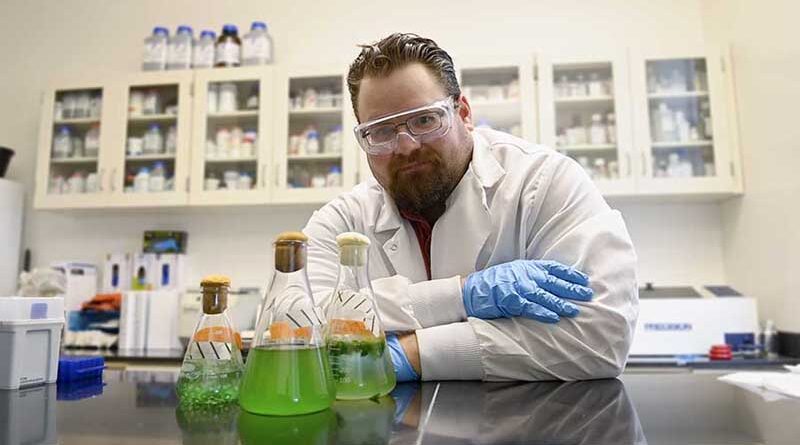Research From Charlotte Virologist Holds The Key To Mitigating Climate Change
Above the still crystal-clear blue waters of Mexico’s Lake Bacalar lies one of the world’s largest formations of modern microbialites. Cenote Azul was discovered recently by a team of international researchers that includes UNC Charlotte’s Richard Allen White III, a computational and molecular virologist and assistant professor of bioinformatics and genomics in the College of Computing and Informatics.
Within this complex ecosystem is a collection of modern microbialites — a kind of “living rock” — that hold the key to unlocking clues to persistent unknowns about how life on Earth began and evolved, and contains the properties to conceivably mitigate the effects of climate change.

